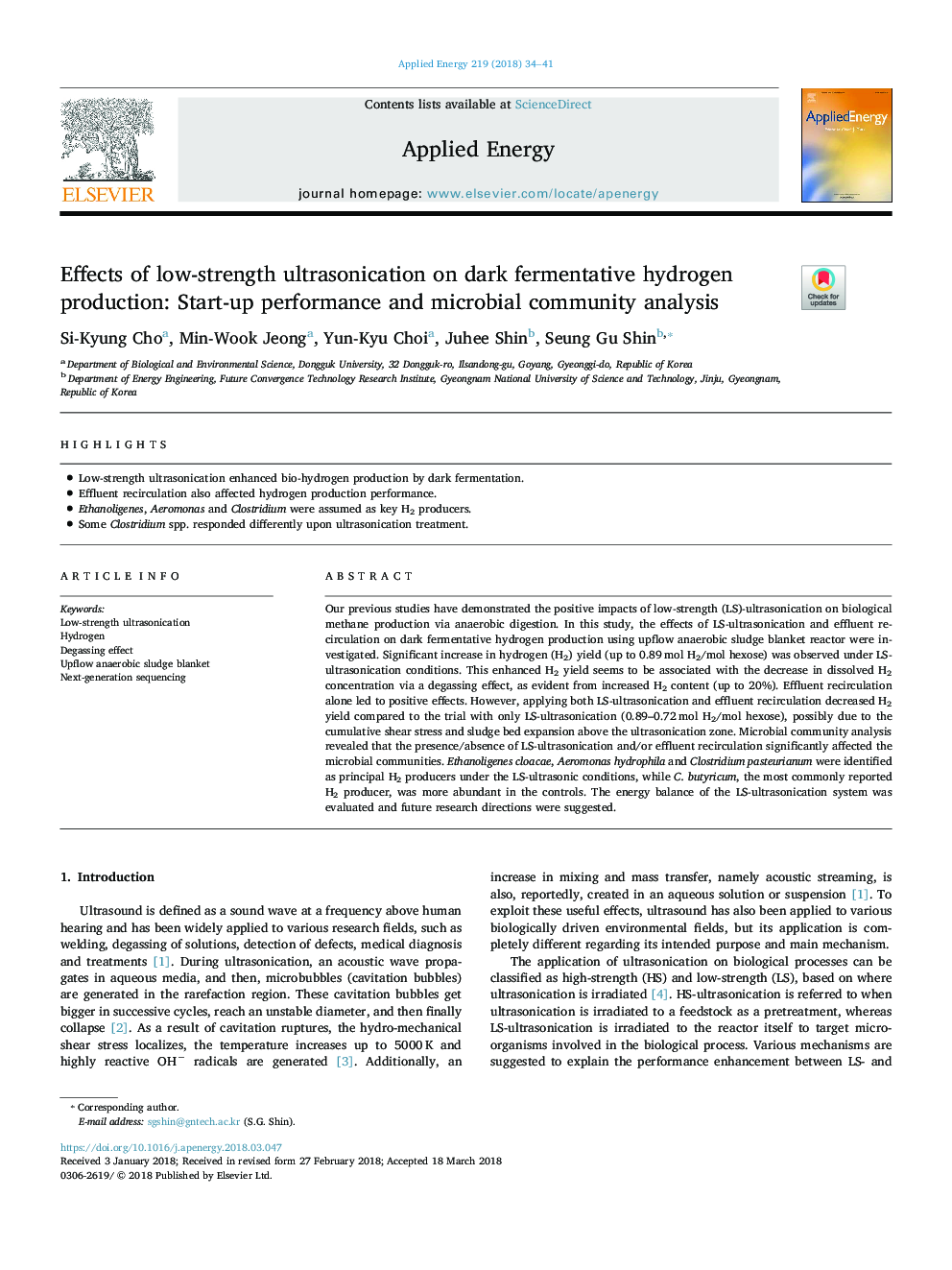| Article ID | Journal | Published Year | Pages | File Type |
|---|---|---|---|---|
| 6680263 | Applied Energy | 2018 | 8 Pages |
Abstract
Our previous studies have demonstrated the positive impacts of low-strength (LS)-ultrasonication on biological methane production via anaerobic digestion. In this study, the effects of LS-ultrasonication and effluent recirculation on dark fermentative hydrogen production using upflow anaerobic sludge blanket reactor were investigated. Significant increase in hydrogen (H2) yield (up to 0.89â¯mol H2/mol hexose) was observed under LS-ultrasonication conditions. This enhanced H2 yield seems to be associated with the decrease in dissolved H2 concentration via a degassing effect, as evident from increased H2 content (up to 20%). Effluent recirculation alone led to positive effects. However, applying both LS-ultrasonication and effluent recirculation decreased H2 yield compared to the trial with only LS-ultrasonication (0.89-0.72â¯mol H2/mol hexose), possibly due to the cumulative shear stress and sludge bed expansion above the ultrasonication zone. Microbial community analysis revealed that the presence/absence of LS-ultrasonication and/or effluent recirculation significantly affected the microbial communities. Ethanoligenes cloacae, Aeromonas hydrophila and Clostridium pasteurianum were identified as principal H2 producers under the LS-ultrasonic conditions, while C. butyricum, the most commonly reported H2 producer, was more abundant in the controls. The energy balance of the LS-ultrasonication system was evaluated and future research directions were suggested.
Related Topics
Physical Sciences and Engineering
Energy
Energy Engineering and Power Technology
Authors
Si-Kyung Cho, Min-Wook Jeong, Yun-Kyu Choi, Juhee Shin, Seung Gu Shin,
